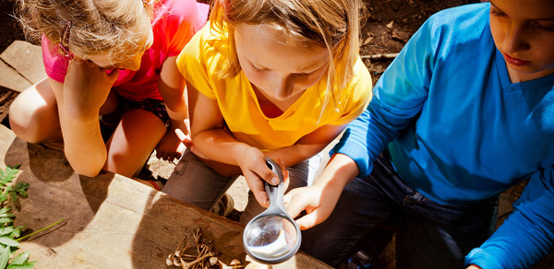
How to effectively teach natural science in primary school

A Wellcome Trust study confirms that natural science is lost in other subjects in primary school. So how can a teacher get kids involved in class?
Natural science develops flexibility of thinking and ability to solve problems, along with more obvious skills and knowledge. However, in primary schools in the UK, natural science is taught relatively little (usually no more than an hour and a half per week) at the same time, in Europe this figure is two hours per week.
This subject is also given less attention than English or mathematics. According to a new study from the Wellcome Trust, one reason is that the importance of natural science is greatly underestimated: 8 out of 10 teachers believe that math (84%) is less important. English (83%) are “very important subjects.” And only three out of ten (30%) said they would like to. talk about the importance when it comes to natural science.
Many teachers simply do not understand how to teach this subject in elementary school in a way that is interesting for children. Just under a third of primary school teachers said they did not support the inclusion of natural science in the list of subjects last year. And a quarter said they were concerned they would not be able to answer students’ questions about the subject. So what can teachers do to make children more interested in natural science at the primary level?
Don’t get hung up on what you don’t know
Natural science is often seen as a subject that should teach a child to understand complex issues. Unsurprisingly, teachers often simply cannot answer some of the students’ questions.
But in order to be a brilliant teacher of natural science, you do not need to have a degree – it is about instilling in children curiosity, observation and thirst for discovery. Wellcome Trust has developed an Explorify platform that allows students to be curious and develop their thinking skills.
In general, the teacher’s main task is to know the “right answers.”
Ask questions
The simple question “What if?” is a brilliant way to stimulate students’ creative thinking. We talked to a teacher who asked the class what would happen if plants could talk. The reaction of the kids just stunned him. Children wonder if plants will create their own language? And will the birds be able to speak like children. Exercise helped children express their fantastic creative ideas.
Don’t be afraid to ask global questions such as “Does color affect the taste of food?” is important and helps to provoke interesting discussions. This approach is also a great way to develop literacy, allowing you to expand the vocabulary.
Ask yourself what your students already know and how the class will be able to approach the question.
Get carried away
Natural science is sometimes called an expensive and time-consuming subject, but the teacher’s task is to teach kids to explore the world on their own, not to show them demonstrations. Without this element, students are more likely to miss the lessons. The main task is to make natural science a personal challenge for every child.
Use the world around you to inspire children to discover science. Use objects in the playground – perhaps it will help to learn about different materials. Take a look into the pond to see the mini-animals that have gathered there and take a closer look at organisms and ecosystems.
And, if you’re willing to experiment ambitiously, the lesson may not go as you planned. Natural science is famous for events related to errors or unexpected discoveries. For example, children may find out that the mould on the cheese produces penicillin.
Grow
We believe that schools should invest in the development of teachers. A more experienced teacher will be motivated by students.
BBC Terrific Scientific, for example, has gathered information and resources to help teachers further improve their knowledge and become more confident in their academic and teaching activities.
Collaborate with colleagues
Primary school teachers are some of the most friendly professionals we know. Many of them regularly use open source software.
To develop natural science, teachers need to combine experience, knowledge and resources. Working together makes this task much easier. Teachers are increasingly sharing their ideas and resources at school, online, through local groups, and through scientific-specific groups such as Enthuse Partnerships. Online forums also performed well in this path.
